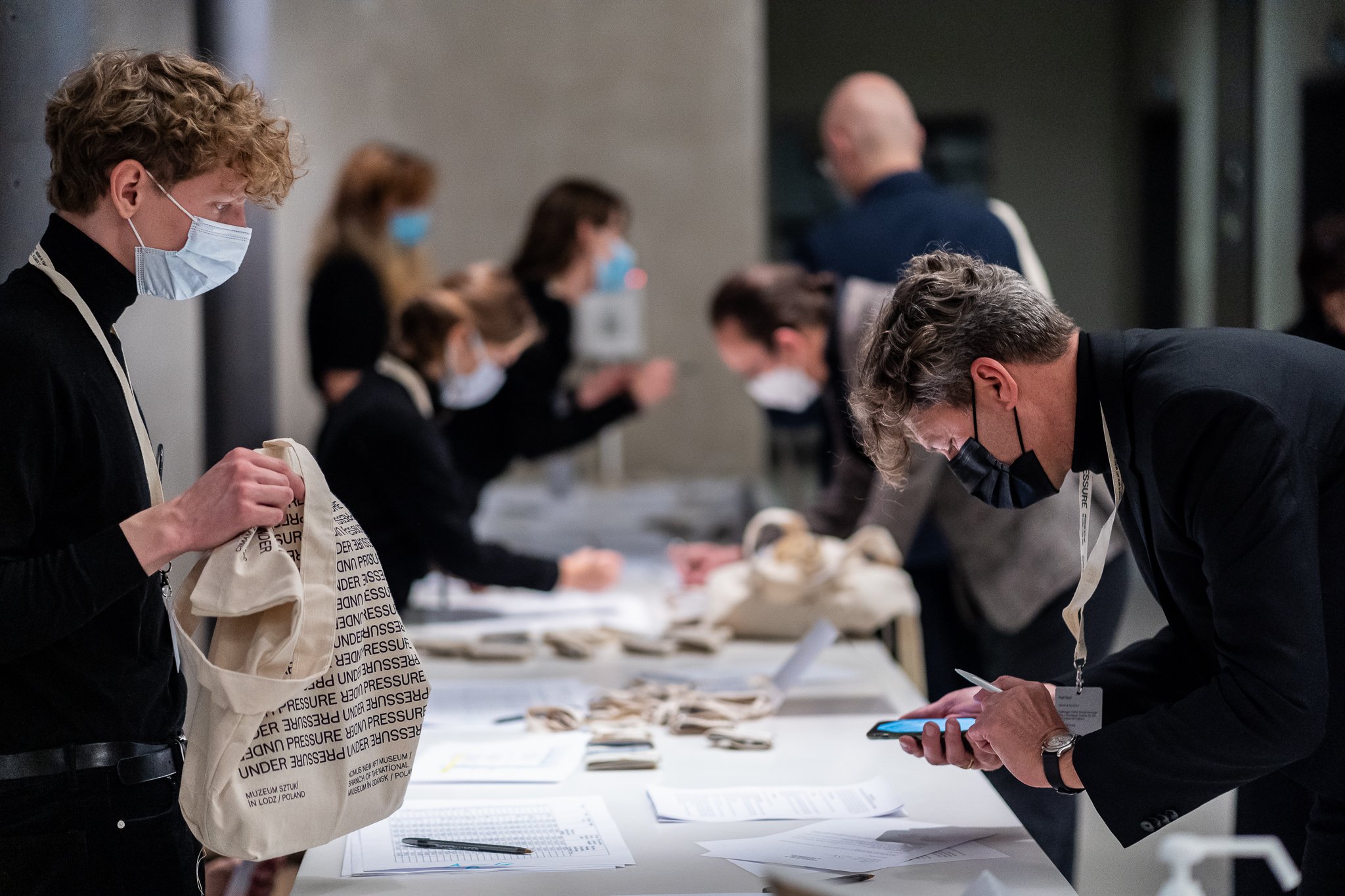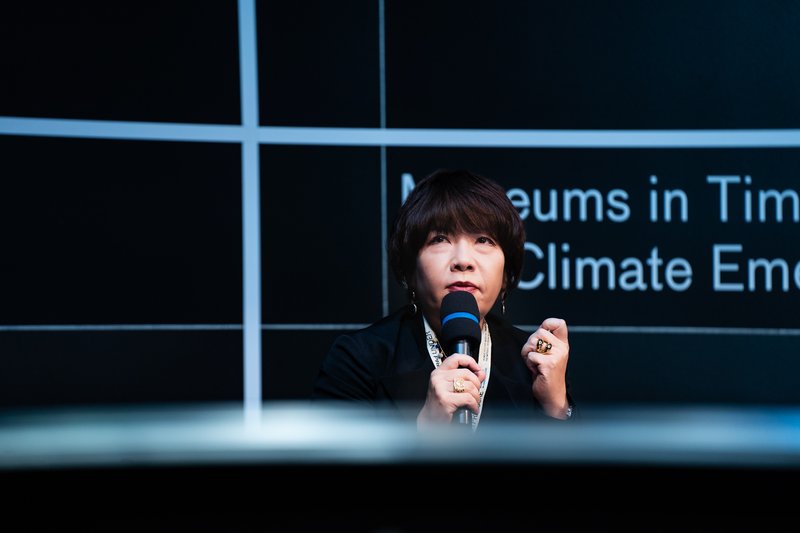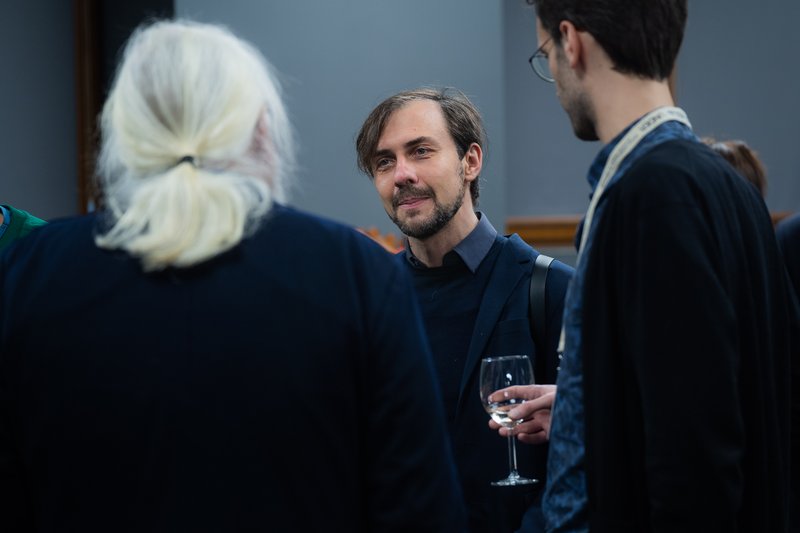"Xenophobia and climate change constitute the most pressing problems that museums have to face today"

Published originally by Télam, November 2021.
The role of museums in the face of the urgencies of today's world, to be debated in Poland
Museums in times of Xenophobia and Climate Emergency will be the theme of the Annual Conference of the International Committee for Museums and Collections of Modern Art (CIMAM), which from tomorrow until Sunday will be held in Poland, in person and virtually, under the title "Under pressure," with presentations by specialists from all over the world, including the Argentinean Maristella Svampa.
The Muzeum Sztuki, also known as the Art Museum of the city of Łódź – the third largest in Poland – and the Nomus New Art Museum in Gdansk, located on the Baltic coast, will host the three-day meeting, which in its 53rd edition, and in a hybrid format, will address the role of artists as agents of change and the role of museums in testing proposals for the communities of the future.
"Within this changing world, museums cannot help but question ourselves and our world," Mami Kataoka, the Director of the Mori Art Museum in Tokyo and President of CIMAM, told Télam.

"We live in an unprecedented situation. So, we have to come together to learn how the world needs to balance different value systems and cultural contexts. And artists always draw our attention to what is essential for human beings, all other life, and our planet," said the Japanese curator.
How can an art institution create platforms for a better understanding of difference? Is there a way to address the xenophobic reactions that prevail in the world at the level of institutional programming?
Without ignoring the current coronavirus pandemic, the guiding idea of the annual museum meeting is to focus on these two current crises – xenophobia and climate change – and to discover the sometimes hidden or unexplored connections between the two through the study of relevant cases that provide methodological tools to combat these trends.
For her part, sociologist and writer Maristella Svampa from Río Negro, Argentina, will speak on "Pandemic, socio-ecological crisis and alternative proposals from the South" on the third day of the meeting, which will focus on the responsibility of museums in times of climate emergency and in relation to sustainability, through transdisciplinary approaches.
Every year, CIMAM's Annual Conference is a meeting point for museum professionals from all over the world, who exchange ideas, solutions, and best practices in the face of specific problems and challenges, taking into account the global situation and without ceasing to envision the future of museums in the face of permanent changes. Each time, with a specific theme.
"Xenophobia and climate change are two symptoms of the current state of capitalism and are putting much pressure on the functioning of our societies. They constitute the most pressing problems that museums have to face today. They may seem heterogeneous at first sight, but they stem from similar developments," Daniel Muzyczuk, Chief Curator of Muzeum Sztuki, the host institution, told Télam.

For this Polish curator, "if we see art as an instrument of emancipation, then a museum becomes a place where different visions of social commitment can be reconfigured and studied in constellations." This impressive museum – located in the city of Łódź, the country’s former textile center, 120 kilometers from Warsaw – was the scene in 1981 of an action by artist Joseph Beuys, who donated 700 pieces as an act in favor of democracy.
Museums today are positioning themselves as ideal spaces for welcoming differences and respecting antagonistic opinions. Are they succeeding? "Success in the contemporary world is counted in ticket sales. Contemporary art is still a language shrouded in superstition. We have to try to reach new audiences. Institutions will not become true spaces of diversity without a greater outreach to people who have never visited those places before. What is at stake is a space in which vital problems are discussed without simplifying them," Daniel Muzyczuk said.
This year's CIMAM Annual Conference will offer a hybrid format, with an agenda adapted to both physical and virtual settings to facilitate access for all audiences. It will include keynotes from such figures as Dipesh Chakrabarty, T.J. Demos, Hilke Wagner, Alex Baczynki-Jenkins, Otobong Nkanga, Binna Choi, Jaroslaw Lubiak, Joanna Sokolowska, Oleksiy Radynski, and Pelin Tan.